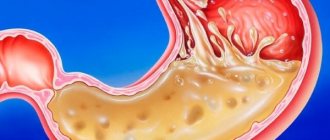The sour taste in the mouth is disturbing and unnerving. Unpleasant taste sensations in the mouth outside of food consumption are a sign of a large number of diseases.
There is such a gastronomic concept as aftertaste. And it is not always pleasant. This is a reaction to stimuli from the taste buds located on the tongue and the inner surface of the cheeks.
A sour taste in the mouth can be the result of using lemon, vinegar, and various marinades for cooking. During the period of not eating food, no foreign tastes should be felt in the oral cavity. If the aftertaste does not go away, or any additional symptoms appear, then the cause of this phenomenon should be identified.
Causes of discomfort
The taste in the mouth tells about the health of the whole body.
The reasons for the appearance of acid in the oral cavity can be both diseases of various organs and a joyful event - the onset of pregnancy.
Possible diseases that cause an unpleasant aftertaste:
- increased acidity of gastric juice;
- excess production of hydrochloric acid;
- disturbances in the gastrointestinal tract - pancreas, reflux disease;
- periodontal diseases;
- the presence of crowns or fillings made of different metals in the oral cavity - such combinations form a galvanic couple and a physical and chemical reaction of electrolysis takes place in the oral cavity;
- electrolyte imbalance;
- dehydration of the body;
- taking medications;
- impaired bile formation and liver pathology - as a result of eating fatty and heavy foods; pregnancy in the middle and late stages - the growing uterus compresses the stomach and hydrochloric acid refluxes into the esophagus and oral cavity.
All these processes are accompanied by additional symptoms. Therefore, if you regularly experience an unpleasant sensation in the oral cavity, you should undergo a comprehensive examination.
If at the same time there is pain in the epigastrium, nausea, and stool disorder, then you need to urgently contact a medical institution.
The following video will familiarize you with the causes of sour taste in the mouth:
Features of treatment
Before eliminating an unpleasant taste in the mouth, it is imperative to find out the cause of its appearance. To do this, you first need to consult with a therapist, who, after an initial examination and interview, will refer you to a gastroenterologist. Depending on the disease, treatment may involve taking medications or adjusting your diet.
Diet food
If an unpleasant taste appears, especially if it is a symptom of a digestive tract disease, the pregnant woman needs to change her diet. A few recommendations for creating a diet menu:
- exclude smoked, fatty, fried foods from the menu;
- include fresh vegetables and fruits in your diet, but do not get carried away with cabbage and legumes;
- eat more iron-containing foods - buckwheat, apples, pomegranates, seaweed and liver;
- The basis of the dishes should be lean meat and fish, which can be boiled, baked in the oven or steamed.
Equally important is the frequency and regularity of food intake. If you have gastrointestinal diseases, you need to eat often, but the portions should be small. Under no circumstances should you overeat, but you shouldn’t starve either.
Drug therapy
What medications can help with bitterness or sourness in the mouth? Medicines for pregnant women are prescribed only by a doctor, taking into account medical indications. The treatment regimen directly depends on the cause of the unpleasant taste in the mouth. The following groups of medications are most often prescribed:
- prokinetics - affect the motor function of the stomach (Domperidone, Cerucal, Motilium, Itoprid, Fractal, Osetron);
- antisecretory drugs - Rennie, Almagel, Maalox, Phosphalugel;
- preparations containing iron - Maltofer, Aktiferrin, Sorbifer, Ferlatum, Venofer;
- enzymes to improve digestion - Pancreatin, Creon, Mezim, Festal, Somilase;
- multivitamin complexes - Elevit, Vitrum, Complivit Mama, Pregnakea, Materna, Femibion.
Traditional medicine
How to get rid of acid or bitterness in the mouth using traditional methods? The most effective decoctions of medicinal herbs and vegetable juices are:
- To eliminate bitterness, it is recommended to regularly drink vegetable juices, especially carrot juice;
- Potato juice is suitable for rinsing;
- if the unpleasant taste in the mouth is associated with dental problems and inflammation of the gums, rinsing with chamomile decoction will help;
- To disinfect the oral cavity, it is recommended to rinse your mouth with a solution of soda and salt.
Acid and sweet
Acidity in the mouth is not a very pleasant sensation
A pure taste sensation is rare. Since there are receptors in the oral cavity for determining and analyzing various combinations.
In a pathological process, acid may predominate, but in most cases other flavors are also present. This provides additional information to find the cause of the unpleasant sensation.
Sweet and sour taste is caused by the following conditions:
- increased blood glucose levels due to stress, physical exertion;
- state of depression;
- excessive consumption of sweets;
- disruption of the gastrointestinal tract;
- liver pathologies;
- toxic effects of pesticides, gaseous chemicals;
- smoking cessation period;
- diabetes with a slight increase in blood glucose levels, a latent form of the disease;
- pathologies of the maxillofacial system, which are accompanied by purulent processes - gum disease, caries, periostitis, gumboils and abscesses.
Before contacting a doctor, you should analyze the factors that contribute to the appearance of a sour taste in the mouth.
How to alleviate the condition and get rid of the sour taste in the mouth?
First of all, the expectant mother needs to adhere to the following diet:
- Avoid foods that cause unpleasant symptoms. Fatty foods, pickles and marinades, hot seasonings and spices, sour juices, berries and fruits are prohibited.
- Eat often, but in small portions. The best option for a pregnant woman would be five meals a day.
- Drink more fluid: up to 1.5-2 liters per day (in the absence of pathology from the heart and kidneys). Plain water, herbal tea, and fruit compotes will be beneficial. It is not recommended to drink sour fruit drinks and carbonated drinks.
- The last meal should be 2-3 hours before bedtime. The habit of eating at night slows down intestinal motility and leads to the reflux of acidic stomach contents into the esophagus.
Normalizing nutrition in most cases helps to cope with the problem. A change in lifestyle will also be beneficial. It is recommended to move more: walk in the fresh air, do yoga, master breathing practices, and do not forget about gymnastics for expectant mothers. Reasonable exercise stimulates the digestive tract and reduces the likelihood of reflux. It has been observed that women who lead an active lifestyle are less likely to suffer from such symptoms during pregnancy.
Rinsing your mouth with a decoction of chamomile, sage or calendula helps remove the sour taste that has already arisen. It is recommended to rinse your mouth immediately after eating and before going to bed. If the proposed measures do not help, you need to consult a doctor and rule out pathology of the digestive tract.
Acid and bitterness
A bitter taste indicates a disruption of the liver and bile ducts. It may appear occasionally, but may bother you regularly.
Possible causes of a bitter-sour aftertaste:
- significant errors in nutrition - the liver is simply not able to cope with so many fatty, heavy, spicy foods, alcoholic drinks;
- alcoholism - the liver suffers first;
- treatment with aggressive drugs - a long course of antibiotics, antihistamines, and other medications;
- those who like to smoke a cigarette at night.
If we consider bitterness in the oral cavity in terms of the intended diagnosis, then most often it is cholecystopancreatitis, erosion of the mucous membranes of the stomach and intestines, gastritis.
Metal
The reason may be unhealthy teeth or gums.
A metallic taste in the mouth can be caused by metal crowns or fragments of dentures. In this case, you should discuss with your dentist the issue of replacing them. When making a diagnosis, exclude:
- diseases of the periodontium and maxillofacial system with obvious signs of a purulent process;
- bleeding from the gums;
- poisoning with salts of heavy metals - such taste sensations are caused by mercury, zinc, arsenic, copper;
- diabetes mellitus in the stage of decompensation with a slight change in blood sugar levels;
- Iron-deficiency anemia;
- chronic bleeding due to stomach ulcers;
- hormonal disorders;
- taking certain medications. The appearance of such sensations is facilitated by drugs from the NSAID group and anticonvulsants. When the drug is discontinued, the metallic taste disappears on its own.
sour mouth during pregnancy
Gained weight again








